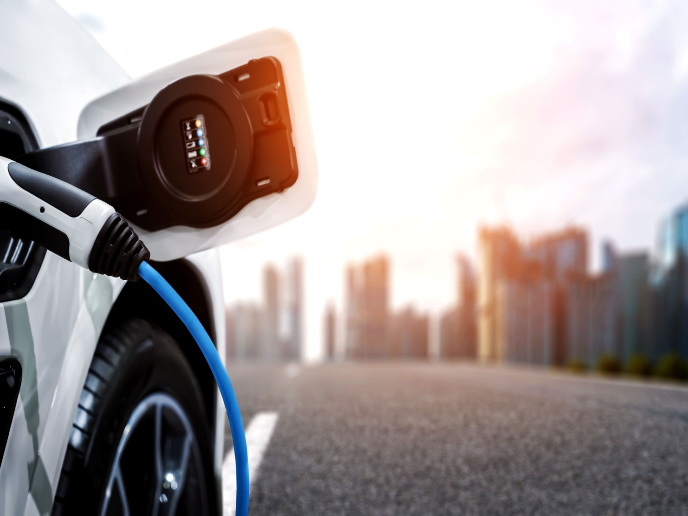Novel OS for smart cities turns energy consumers into ‘prosumers’
Most people have been unpleasantly surprised with sudden changes in their energy bills at least once in their life. With other services like mobile telecoms, providers would be quick to react, identify the problem and suggest bespoke plans that would better fit their client’s needs. Energy consumers, on the other hand, will often be left in the dark. Providers don’t have enough data available to identify solutions, whilst consumers have no access to their own consumption patterns and can’t actively participate in the renewable energy market. At city scale, this realm of the unknown makes it very difficult to plan for future energy demand. In the face of these unfilled needs, the IURBAN (Intelligent URBAn eNergy tool) project is providing a smart decision support system (SmartDSS) that collects, aggregates and analyses data in order to suggest optimisation plans. ‘An energy router at each end-point collects data related with energy consumption and production. It ensures lossless data communication to the Smart City Database, which is located in the Cloud,’ explains Tatjana Perse, leader of the project’s dissemination activities. ‘There, the system can visualise, analyse and take decisions for all the end points that are consuming or producing energy at city level, allowing them to forecast and plan renewable power generation available in the city, and enabling real-time optimisation.’ From individual benefits to the greater good There are three levels of IURBAN contribution to the development of smart cities. The first goes to citizens: the IURBAN system makes the most of big data analytics to meet their demand for affordable, clean energy services, while ensuring privacy and enabling them to participate actively in the energy market. 'Energy consumers can choose to give their data to third parties such as solar panel installers, window and insulation installers, energy providers, software and smart appliance developers or other entrepreneurs. This allows for a faster detection of problems and an identification of ways to reduce energy consumption,' Perse explains. 'The system also encourages citizens to become “prosumers“, which means they don't only consume but also produce energy that can be redistributed to other users. IURBAN offers the tools to manage and overcome both technical and financial barriers to the creation of such small-scale renewable energy systems.' Of course, other energy stakeholders also stand to benefit. Energy producers and retailers can improve their demand and supply in real-time while easily making trend-based decisions about pricing, resource allocation and planning for asset utilisation. IURBAN's set of software tools covers the demands of all stakeholders involved – from ICT experts to energy managers, utilities, retailers, construction and civil engineering, and public authorities. The idea behind the centralisation of all this data is that it can eventually benefit the city as a whole, facilitating the emergence of smart energy cities (SECs). 'IURBAN can be adopted by smart city planners as a novel OS. They may access the system to gather useful information for reporting purposes, to take decisions or simply to monitor and predict trends,' Perse notes. The path to smart energy cities In a recently published study, the project also offered some insight into the best way for decision makers to operate a SEC. This is an important contribution as there is currently no single approach valid for all local contexts or even a consensus on who should lead the way and what capabilities are required. The Fraunhofer-led survey focused on soft competencies which, unlike technical know-how, are often overlooked by researchers. 'On the positive side, local governments, who may be the obvious choice for running SECs, already seem to be competent enough for both respecting consumers’ privacy and working for the greater good,' Perse says. 'Unfortunately, local authorities are also perceived as neither sufficiently innovative nor able to identify market trends. They have a poor understanding of energy consumers and their behaviour, and do not benefit from enough community trust'. Although these deficiencies might be overcome through internal capacity-building, it still remains unclear which exact local authorities should be in charge. Many surveyed experts proposed multi-sectorial coalitions for cooperative SEC operation, which would allow other sectors' strengths to complement governemental weaknesses, but it remains to be seen which option local governments will choose. Until the question of who will run smart energy cities is solved, that of how they should be run already finds an appealing answer in IURBAN, which can provide local authorities with most of the knowledge they are currently missing. The system does not only provide tools for the global management of energy consumption, production, distribution, storage and trade at city level, but it can even be extended to other applications and services needed in Smart Cities like reducing congestion; improving emergency response and reducing crime; improving education delivery and government services, etc. All in all, IURBAN will help local authorities to achieve sustainability, reliability and cost-effectiveness of energy services; predict energy loads and distributed generation; raise social awareness and build policy strategies. The project's video is available here.
Keywords
IURBAN, energy, smart cities, urban, consumers







